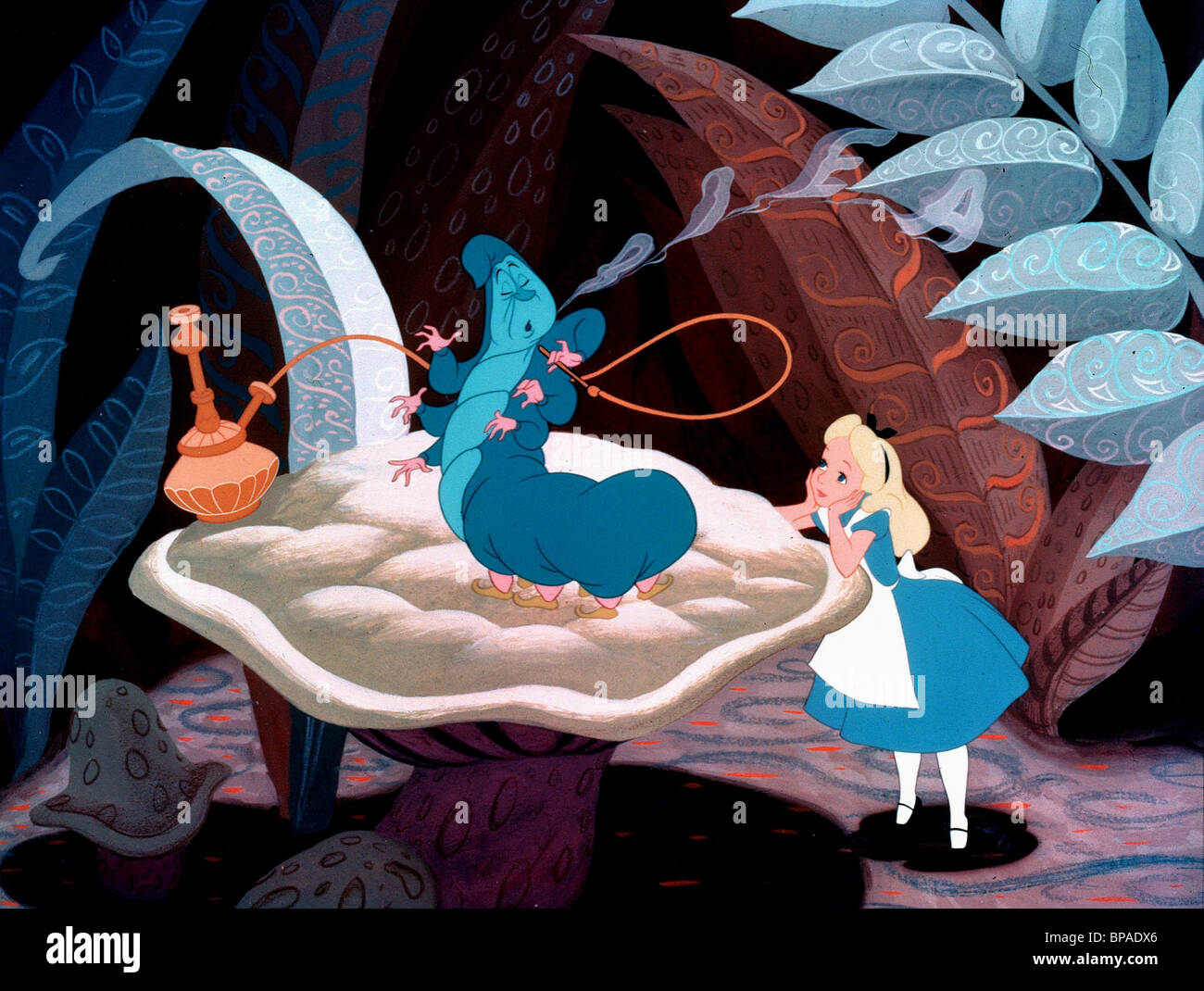Image text: @agnieszkasshoes: “Part of what makes small talk so utterly debilitating for many of us who are neurodivergent is that having to smile and lie in answer to questions like, “how are you?” is exhausting to do even once, and society makes us do it countless times a day.”
@LuckyHarmsGG: “It’s not just the lie, it’s the energy it takes to suppress the impulse to answer honestly, analyze whether the other person wants the truth, realize they almost certainly don’t, and then have to make the DECISION to lie, every single time. Over and over. Decision fatigue is real”
@agnieszkasshoes: “Yes! The constant calculations are utterly exhausting - and all under the pressure of knowing that if you get it “wrong” you will be judged for it!”
My addition: For me, in addition to this, more specifically it’s the energy to pull up that info and analyze how I am. Like I don’t know the answer to that question and that’s why it’s so annoying. Now I need to analyze my day, decide what parts mean what to me and weigh the average basically, and then decide if that’s appropriate to share/if the person really wants to hear the truth of that, then pull up my files of pre-prepared phrases for the question that fits most closely with the truth since not answering truthfully is close to impossible for me.
https://www.instagram.com/p/CvPSP-2xU4h/?igshid=MzRlODBiNWFlZA==
I believe that part of the problem - at least in my case - is that typical person immediately sees 3-4 possible generic answers to such questions.
For me… It’s like opening Pandora Box and have the brain flooded with not just answers but long chains of interactions, where none leads to anything positive. A “simple” question is like like an abyss that’s gonna suck you down and exhaust you while you’re trying to escape it so much, that you feel like lying down and trying to remember that air is meant to be inhaled again after it’s exhaled…
There was this scene in the original Terminator movie, where the robot sees the spinning list of possible answers to “cat question”. For me, this list doesn’t stop. Even when the conversation is already finished, the list continues to spin.
The “typical” person doesn’t see 3 or 4 answers, they have prepared a few generic answers to those small questions, and anyone can do that. Unless you’re really feeling different, and have enough intimacy with the asker to be honest, it’s just a game of tic-tac-toe that anyone can learn.
How are you doing? Fine, how’s life treating you?
Nice weather, eh? I’ve had better.
Etc.
Nobody is saying that neurodivergent people can’t do small talk, it’s that it is oftentimes a dreadful experience for them. You do understand the difference, yes?
It’s a bit like telling someone genetically predisposed to disliking cilantro because it tastes like soap to “just eat cliantro… everyone can do it!”
Fine, but beware of getting on the “I was born this way and I can’t change even if I wanted to” train. That’s extremely harmful to your personal growth, because even if you were truly different genetically, it can be used as an excuse to not learn or change, even if you were capable of it.
The thing is I can do small talk, it just costs a lot of energy that I’d rather use for something more important. And I honestly don’t see a reason to mask all the time and pretend I’m not who I am.
While I might mask in short interactions with strangers I refuse to do it with people I know. They’ll have to accept me the way I am. And that, in fact, is personal growth as well. To accept yourself the way you are and stop pretending to be something you’re not.
In fact, I believe it is the “truest” form of growth, to accept oneself the way one is.
And where in the game is the free will to simply not play the game? Shouldn’t that be an option as well?
This comment gets under my skin because in this community for autistic folks we have heard this kind of thinking our e-n-t-i-r-e lives and NT never ever ever ever understand just how much effort it takes for us to mask in order to fit in with their arbitrary ass rules that we consider hella dumb. I long for the day when a NT person comes into communities of autistic people and says, “wow, you know what, all this you’re saying makes a lot of sense and this social protocol IS hella dumb and doesn’t actually serve any valid purpose and I’m with you! I’m going to help out and join the movement to making society more accommodating to different brains preferred way to be, instead of assuming like everyone always does that the way society is is by definition the right and only way it should and could be.” How about calls for personal growth that aren’t ableist and full of unexplored privilege and ignorance about what masking actually does to us. Because I’ll tell you right now that it is 100,000% devastating and the fact that many of us are keeping it together enough to survive is FUCKING MIRACULOUS and we honestly deserve monetary awards and rest and a fucking break.
Thank you for saying what I was trying to express and just couldn’t. It hurts so much to be told “just act like ‘normal’ people so you don’t seem to be ‘disabled’”. We’re not disabled, just different!
I’m disabled. I can barely deal with normal amounts of noise. Banning cars and ads would go a long way to making me less disabled, but unfortunately I just have a lower tolerance for attention violence, and we live in a society of frequent attention violence.
I understand what you mean. I’m also extremely noise sensitive and have to wear ear plugs pretty much all the time. Being outside is so exhausting.
That’s part of what I was trying to say though. This world isn’t made for us and barely anyone cares to make it easier. In a different world we wouldn’t be disabled. We have different needs than NT people and it’s the world that disables us, not our being different.
❤️I swear we’re gonna get this all sorted out. Maybe not in our lifetimes, but we’re gonna help it get there. Just by having these conversations we’re gonna make it happen
Did it occur to you that I could be a neurodivergent person too? Did you label me an enemy because I’m not getting on the “I can’t help it, I have no choice” train?
I couldn’t tell you I’m actually autistic to some degree because I’ve never been tested for that. I’m introverted, struggled with shyness most of my youth, and was very inept socially to add insult to injury. It has cost me a great deal to learn to improve those aspects of life, and I owe a great deal of it to my wonderful wife, who somehow reciprocated my affection when I was still emotionally stunted.
That’s why I can speak from my own experience, and not trying to tell people here to “just walk it off”. That being said, most of us are capable of growth and change, we can adapt. Yes, there are severely autistic/disadvantaged persons that can’t, but I’ve seen too many others using the pretext of being different to assume they’re autistic too (without a medical diagnosis) and are too hardcoded to change. What most functional people perceive as innate disadvantages is, at least in part, emotional immaturity. We focus on improving some aspect, study or expertise for example, but neglect others, like socializing, empathizing, or management of emotions. We grow unbalanced, and it’s wrong to pretend we can’t change without at least doing an honest try to change.
I don’t know why I’m being so insistent here, probably because I’ve seen this attitude more in the younger generations, IRL, and it’s not like something is making more people autistic, but making them less eager to examine and improve themselves. I’ve met autistic and mentally challenged people in my life, and they’re truly limited in their capabilities, but highly functioning people claiming they’re the same as them is bordering entitlement.
I think there’s a lot in your comment to talk about and I certainly don’t think you’re wrong about a lot of things. I think if we were in person we could have an engaging evening of discussion that will be harder to do in this way online but I will try to expand just a little more.
Your comment made me think about something that’s been brewing in my mind a lot recently but I’m not sure it’s entirely fermented enough to put down into words yet.
It has to do with my reflection on interpersonal relationships with people who I suspect might be ND but are either closeted about it or perhaps don’t even know themselves, people who have put a lot of work into analyzing social norms and applying those lessons in themselves so that they can pass as normal. I suspect these folks I’m thinking about are autistic in large part because of their rigid sense of social norms rules, and their clear anxiety when they see people eschewing those rules.
I was afforded a lot of freedom to be weird as a kid. I learned social rules for in the classroom quickly, but outside that I was very lucky with the kids that were around me. And since I loved school and learning so was missed for my ND I just grew up understanding myself as someone who was a weirdo but was accepted for that.
What this means in this context is that I find myself often triggering the above group of suspected ND folks who I think were probably not as lucky as me and who learned to be very rigid in applying social norms in order to be accepted. It smells of trauma, right? And how could it not be trauma. Being rejected as a kid is probably the most primitive danger we face outside of actually dying.
The point I’m getting at here is that I don’t think you’re wrong in a lot of ways but I think there has got to be a middle ground where yes we are learning the social norms and applying those lessons in order to provide the social lubrication to get along and succeed, but ALSO educating the world at large that Neurodivergence exists, is valid, and should be accommodated. I just really believe that the vast majority of the reason ND is not accommodated is because of unintentional ignorance.
So you clearly have had a lot of experiences with people who you felt were not trying hard enough to learn and apply the social rules. So that has shaped your perspective in this discussion.
I have had so many more experiences of the opposite where I have seen people living with intense anxiety constantly about their ability to fit in, and failure despite all their efforts. People who are killing themselves with stress, leading to burnout, depression, substance abuse, abusive relationships. All of this i see as a direct product of them never being given permission to be themselves, be different, advocate for their needs.
So I don’t think we are actually at odds in this discussion and I think if we were able to talk in person we would find that out.
Thank you for your sensible response. I also think online forums make it harder to carry a complex conversation, because we’re filling in missing context that comes with personal interaction. I don’t doubt we could discuss our personal experiences in a constructive way, and learn from both sides, given a better medium.
Fine, but…
You could have just admitted you were wrong and move on but you had to say something else to save face.
First downvote on Lemmy because it’s simply not true. To some people, smalltalk does come naturally.
Also, having “a few generic answers” does not solve the problem. The mind still fills with way too many thoughts.
Most of us neurodivergent people consider ourselves smart and observant. Observe those who you consider small talk comes naturally, and see how they fall into patterns. They’re more elaborate that a non-answer catalogue, but they’re still crutches to make ease the friction.
An acquaintance of mine, for example, tells jokes. Some times they bomb, but he doesn’t sweat it, they’re still ice breakers. Another acquaintance immediately gets the attention of nearby females by retelling one more how he went randomly backpacking across Europe as a poor, young musician. If that doesn’t work, he has other, equally entertaining tales, which we have few ways of fact checking, ha ha.
But for us small-talk-stunted people, clever non-answers are a perfect crutch to fend off the awkwardness until we acquire this skill, and we can always refuse small talk if we’re not in the mood.
The “typical” person doesn’t see 3 or 4 answers, they have prepared a few generic answers to those small questions, and anyone can do that.
Having a few generic answers is the same thing meant by “seeing 3 or 4 answers”.
Then it isn’t that hard to do, right? There’s no innate talent to it, just plain memorization.
For me personally, I’ve been able to “learn” to respond with a few generic answers but that still doesn’t change the over analysis after the fact.
Did I seem genuine enough? I wish I could tell them how I really feel. Why bother responding if it’s a lie? I hate lying. Etc.
So yeah outwardly I appear to be good at small talk. (Heck I even worked sales for a few years) but internally it’s draining.
Believe it or not, that is plain emotional intelligence. Over analyzing can become a vicious circle, but most therapists will teach you ways to escape the dreadful scenarios in our heads, and ground yourself in the real world.
The liberating part is that most people don’t care about you much at all, they won’t obsess because you said “you too” to your waiter, they’ll forget your faux passes quickly if they’re small.
For some people it is hard to do. I have ADHD and it is tiring because I have to actively focus on not jusy being honest, but apparently not as much as someone who is autistic.
Saying ‘why do some people find my effortless things take a lot of effort’ over and over is the same thing as telling them they are wrong for telling you it takes them effort.
It isn’t hard to listen to people, is it?
I used to struggle a lot with small talk too, and dialogue in general (used to be too literal), that’s why I can relate to some of the answers here. I speak not from prejudice, but from my own experience.
That same experience has taught me that not thinking like the rest is not necessarily the same as being neurodivergent, but having developed different skills as you grew up. If willing, everyone can learn a skill they find lacking at least to a beginner level.
I agree. That’s exactly what I do. Memorize two or three different socially acceptable answers to each of the half-dozen or so most common “human vibe check” questions.
Because that’s exactly what they are. They’re human vibe checks. It’s not about finding out how you’re really feeling, or what you honestly think of the weather. It’s about being a quick way to sort out who is capable of of functioning in a social capacity and who isn’t, without putting in a lot of time and effort doing an in-depth screening.
“Small talk” is culturally designed to weed out 70-80% of those people who are likely to be dangerous, unstable, or unreliable, allowing us to know who we need to pay close attention to in our environment and who we probably don’t. It’s not a question of “lying” or “telling the truth”, it’s a question of “can you perform your socially expected role in this cultural ritual?”.
Saying “I’m fine, how are you?” is no more “lying” than doing a safety check on an airplane you’re about to fly is (because you don’t actually need to engage the flaps right now, being on the ground and all). It’s just about checking to make sure the right lights come on and the right motors engage. If a person can’t even answer a question they’ve had decades to prepare for, and can’t engage, even to a minimum acceptable degree, in a small social ceremony they’ve watched thousands of times and had hundreds of opportunities to practice themselves, that’s a bad sign. That’s like trying to engage the flaps and hearing some weird grinding noise and getting a red blinking light on the console.
It’s important to note here that I have a bit of an advantage in this arena over a lot of the rest of the community. One of my deepest autistic hyperfocus areas has been observing, experimenting, and collecting data on human interpersonal communications, specifically linguistic communication. It’s all very ritualistic, at its base, and it’s easy for me to create, memorize, and practice the scripts for performing those rituals in different contexts. And when I fuck one up, I can go back through and memorize another script so if that same conversation every comes up in the future (and it will, because there are only so many rituals!), I won’t fuck it up again (to the same degree).
“Small talk” is culturally designed to weed out 70-80% of those people who are likely to be dangerous, unstable, or unreliable, allowing us to know who we need to pay close attention to in our environment and who we probably don’t. It’s not a question of “lying” or “telling the truth”, it’s a question of “can you perform your socially expected role in this cultural ritual?”.
I find that the best and worst people are really good at small tall. The best people use small talk to establish relationships and ease into more personal topics that they honestly care about. The worst people use small talk to establish a connection that they can abuse later on.
It doesn’t weed out anything but honest people.
It doesn’t weed out anything but honest people.
That’s like saying a pre-flight check doesn’t throw up errors on anything anything but honest machines. But, more to the point, you’re right, in the sense that the people on either tail end of the “good/bad people” bell curve aren’t going to be precisely detected by a simple test of inclusion/exclusion criteria. The ~60% of people in the middle will be. That’s why it’s a screening tool, not an in-depth socio-psychological exam.
As long as your honesty comes closer to filling the socially expected role than, say, a man who’s high on meth or a Qanon conspiracist who thinks “how are you?” is a sex-trafficker code, you’re probably ok.
The ability to follow social rituals like small talk, handshakes, bowing, making small offerings, etc. doesn’t screen anything for the people in the middle of the bell curve other than the knowledge of and conformity to social rituals.
What is the benefit of screening people through social rituals?
I agree with this. Observe carefully someone who you deem a master of small talk, and you’ll notice it’s not intellect or genius, but patterns of small non-answers they’ve learned to use as conversational support.
If you are asking this question you haven’t read enough of the responses to this post. Consider refraining from commenting until you have read more and listened and reflected on the experiences of others different from yourself.
No, I will not consider refraining from replying just because you don’t agree with my comments. I’ve replied to plenty of comments to explain my point of view, to show it’s not a superficial opinion. Don’t pretend to discuss by trying to silence your interlocutor.
You can always block or report me if you must, just don’t try to pass that attitude as dialogue.
Yeah I understand how my phrasing would make anyone feel defensive. Maybe you might attempt to understand why the phrasing you used in the comment I was replying to might trigger someone to want to tell you that.
anyone can do that.
…
Imagine that somebody places before you a dozen baskets all filled with white balls the size roughly of a ping-pong ball.
They are all identical. There’s no way to discern one from another.
Then he says: pick the right ball, but be warned, picking some among them will result in a member of your family dying a horrible, gruesome death. Now choose, you have 20 seconds.
And then he switches off the light.
That’s how it is.
That’s not how it is, you’re comparing a Saw movie with small talk, talk about hyperbole.
You can always say “I don’t feel comfortable with small talk” if you don’t want to make the effort of making your own quick-answer list, and no loved one of yours will die because of that.
It’s hyperbole yes, but there’s a kernal of truth to it.
Consider that this conversation is one example of the hundreds of examples ND people experience every single day for how they are asked to mask their initial reactions/responses/preferences for seemingly arbitrary meaningless reasons “just because” that’s how it’s been done and no one wants to care about how it impacts us day in and day out.
Consider how it is a cumulative effect that builds up. Frustration, embarrassment, confusion, annoyance, sadness, hurt, yes even rage at the stupidity and injustice of it all.
These are the emotions ND people in your life are experiencing every day all day as they go about trying to survive and fit in in a world that is constantly telling them that they are wrong for the way they instinctively react to things and their preferred ways of being and interacting are not only weird and wrong but somehow disturbing and put a target on their back for disrespect or worse, bullying, being ostracized, fired, or targeted for harassment.
Try to think about that before responding. Really think about what that would be like for someone to live with every single day in every interaction with other people.
Oh, they can pretend. They can pretend so freaking well that loads of people have ZERO idea they are experiencing any of this. They just see them as a little shy and a little weird. A loner. Creepy maybe. Or maybe they are so good at masking you don’t even see that. You see a happy friendly person. Meanwhile inside they are so fucking tired.
All of these stupid little dances we have to play in order to be accepted. When being ourselves, why would that be so bad? It doesn’t make any sense. But whenever we try to unmask, society very quickly shows us that is not acceptable.
That’s not how it is, (…) You can always say
This is precisely how it is for many people, sometimes even worse.
“Well fed won’t understand hunger”, pretty much.
Since I think no one will see my comment at the bottom of the OP im going to reply it here as I think it’s relevant to your content.
For me, in addition to this, more specifically it’s the energy to pull up that info and analyze how I am. Like I don’t know the answer to that question and that’s why it’s so annoying. Now I need to analyze my day, decide what parts mean what to me and weigh the average basically, and then decide if that’s appropriate to share/if the person really wants to hear the truth of that, then pull up my files of pre-prepared phrases for the question that fits most closely with the truth since not answering truthfully is close to impossible for me.
Yes, exactly this. I don’t know how I’m fucking doing, don’t ask me that question, I don’t want to know.
I’ll be honest, it really feels like you’re overanalyzing it. You really can just say you’re fine and go about your day. You don’t need to analyze your day or even know how you’re feeling at the moment.
There’s a couple different issues at hand here. There’s the social protocol being stupid and annoying part which is what I think you’re referring to. I don’t analyze my day like that with a stranger like a retail worker, or anyone at work. I know the social protocol. I just think it’s a dumb game and I don’t want to play.
Then there’s another aspect which I was thinking about when I wrote the above comment. I was thinking about how even with dear friends, even with my partner who truly want to know how I am, I personally get tired of the question. And maybe that’s unreasonable of me, and I know they mean it out of kindness and love. But it can feel formulaic, like ok are you just initiating a conversation and therefore don’t need the full answer or are you really truly asking? Because when I know someone cares about me and wants to know that’s when I feel like I need to run the above algorithm.
But chances are when people ask me how I am, honestly I’m probably dissociating right now in order to not be overcome by how exhausted and burnt out I am just trying to survive. So a. I don’t really know how I am most of the time unless im in the middle of an emotional experience. And b. I don’t really want to go and pull all those emotions up and relive them in order to analyze the words to summarize and describe them. That honestly makes me feel worse.
So what I wish I could figure out how to communicate to my loved ones is that I will tell you what I want you to know when it occurs to me to say it. And if you want to connect with me and talk to me, why don’t you just tell me what’s on your mind? What are you feeling if you have any feelings, or what are you doing? Or what’s your current interest? Literally anything. I always want to hear from you and listen to what you’ve got to say and let the conversation grow from that. Because that’s how I approach conversation. I just start talking to you about whatever it is I’m thinking about. If I just feel the urge to connect with someone I haven’t spoken to in awhile, I’ll usually say something like “thinking of you, hope you’re well” because that’s literally what’s happening to me right now.
For me when I’m asked how are you? It feels as much pressure as a phone call. Like, please don’t call me! It’s such an imposition demanding attention immediately. I much prefer text so I can think about, draft and edit my response, and respond when I’m ready on my own time. So same with how are you? Like maybe I don’t want to think about that right now. Maybe it’s painful to think about how I am. Maybe I’m not ok but I’m just a saran wrap covering of keeping it together. So talking about it directly is too risky. But I want to talk to you.
Anyway, I can go on and on so I’m going to stop treating this like betterhelp. Hope some of that helped explain why I said what I said although I’m betting probably not. I think something you might have missed was that the post was intended for discussion among those who feel similarly, and really not asking for help. Because there is no help. It’s just the way it is. We understand the social protocol, we just would prefer it to be different and find the whole charade to be one of the hundreds of daily ways we feel othered by society, showing us we don’t fit in, which is often very unnerving and/or frustrating. And when you are feeling those things every day in every interaction with people, it’s a cumulative effect. Ok I’m stopping for real
I’m old, but it took a lot of time to network/socialize. I know there’s books/material to socialize now. I have learned to grey rock, and just go neutral with giving a response to most situations.
This is a learned thing. No one teached us this back in the 80s or earlier. Life isn’t easy, we learn as we get older. Yes, it’s hard, but if some random person asks about your day, just say “great, how about you?”. Put the focus back on them. Let them talk. Just listen. Oh, their grandma passed away last week? “Damn, I’m sorry to hear that. Let’s remember her legacy, and know that she lived to her fullest.”
We are all still animals at the end of the day. You can make mistakes! Learn from them, and move on. Learn as you go.
deleted by creator
“I am functioning within established parameters.”
LOW ON CYAN
Living the dream
I just answer honestly. I don’t have time to be a fake person.
deleted by creator
Yeah you can answer however you want just keep it short.
“I’m having a tough week, but I’m working through it. How are you?”
My problem with this is that while I don’t like lying I also really don’t want to talk about my personal problems with someone I’m not intimately close to. So honestly, I would prefer if people who aren’t close to me don’t ask the question in the first place.
Like I’m not going to tell you that I’m having mental health issues this week and I’m about to lose my shit because everything feels overwhelming and I’m not sure it’s worth it anymore. So no I’m not really “getting through it” right now. But it also is going to be very challenging for me to lie to you right now also.
So maybe don’t presume that we have the right to that information in the first place and just say something in greeting that doesn’t require someone to divulge, honestly or not, private information about themselves.
I’m going to try to implement a “Hi, hope you’re having a nice day” instead of how are you to people I’m not close with in practicing this.
That’s fine, who even simpler.
“I’ve been better, how are you?”
Honestly society has decided on this passing thing. I understand it makes you uncomfortable but unfortunately it’s just something you have to deal with.
My suggestions aren’t meant to be a perfect thing, they are just something to say that isn’t a lie and isn’t over sharing.
Beside that you just have to lie. “Fine, you?”. Or ignore it and move on to the topic you are taking to them about. Your suggestion is a good one, if you get to go first.
Personally I don’t want to live in an even less caring society, and this social question (even if shallow) is one scrap of connection.
You can be honest in this society if you are exactly average and have no opinions others would dislike. :)
It’s not that bad. Only if it’s really important to you that noone dislikes you or are bothered your opinion. Unless you have some seriously inflamatory opinions it’s not the end of the world.
Such as? What kind of opinion would you use to reply to “how is it going?” just to understand
This is why my default response is now either “alive”, or in the case of “how’s it going?”, “it’s going”
I’m not autistic, but I got sick of this stupid expected “how are you?”, “fine” nonsense. It’s meaningless. Now I just give a quick honest answer. Nobody really finds it weird and it makes for much more engaging non-monotonous interactions.
You can even answer negatively if you manage to tone it right. “Eh, bit stressed”, but then in a positive, non-confrontational, tone just add “but how are you?”.
As long as you keep it brief, the other person can question it if they are genuinely interested, and then you can have actual conversation, or they won’t if they’re not really interested, it works fine either way.
The way I understand “how are you?” is not like an actual question, but a simple form of greeting, like “Hi”. There is no need to answer it, you might as well say the same thing back again.
Yeah, but you don’t get organic conversation from that. If that’s how you want it, that’s fine and normal - but otherwise if you reply with a small honest answer that doesn’t reveal too much, it doesn’t put pressure on the other person to respond, but it does leave it open for them to. I just find it as a simple, somewhat unorthodox thing that does lead to better connections with people
Isn’t that what small talk is, what does everyone else do
what does everyone else do
Lie and move on.
Most people just say “good and you?” even if they don’t actually feel particularly good.
You could say “I feel the way I usually feel” (which is what I always say).
- It’s truthful (probably).
- It confuses the other one, giving you a second to breathe.
- It could be perceived as funny (as unconventional) by others, making you be seen positive.
I used to try (I can’t always talk) and reply honestly and that made people treat me weirdly and try to take advantage.
I then tried making appropriate things up and that kinda worked but some people got angry and ended up calling me a liar and assumed a whole bunch of awful stuff on top of that, so ultimately it ended badly.
Now I just avoid people and conversation as much as I can and give vague, noncommittal and brief answers if anyone tries talking to me.
This works in the short term but anything longer than a few minutes has people assuming negative things about me, which if I have to interact with them again over time, means they can get emotional (angry) over the things they’ve assumed about me.
Life is so much nicer without involving other people.
deleted by creator
I worked customer service for some jobs and have a system. If people ask how you’re doing, they don’t want an answer. They want you to say something corny and friendly, use the same tone and accent they do.
Haha yeah in retail interactions I don’t even answer, I just reply with “how are you” it always makes me laugh how absurd social etiquette can be
“Hi how are you?” “😌 How are you?”
😂¯\_(ツ)_/¯
I’ve work in customer service too, but luckily in a different culture. Here it is just
-
Heisann!
-
Hei, [what the customer wants help with]
I tend to forget when I’m visiting other cultures. A bartender in New Orleans, US got pretty upset with me when I just started to look at the menu and order, not do the whole “how are you” thingy
Lucky you! It was a good skill for me to learn though, I still use my customer service persona when I have to talk on the phone or in person with strangers.
I have many a time reflected on how thankful i am for this, it’s to the point that my autism just tends to manifest as being the perfect customer which helps me A LOT with feeling like i belong.
-
For me, life isn’t that difficult. I work construction, and apparently that is the world where it’s ok to be weird. I answer honestly to every question I’m asked, and people either think you’re joking or just appreciate the honesty. When I get the “how are you today”, I normally respond “well I’m here, so not great”, and that’s totally fine
Agreed, I always love when I get to work with construction guys because they are some of the realest people I get to meet.
since in most other languages people don’t ask “how are you” would this problem exist in other languages?
I would love to learn more about autistic experiences in other countries outside America. What are the social protocols that they struggle with?
@MadgePickles@lemmy.dbzer0.com The phrase “can’t complain” referring to the fact that if I did, there would be consequences. I try to assume that if someone wants to know, they’ll ask again when they hear a nonanswer, giving me more time to do the math.
deleted by creator
Reading these kind of things always makes me think to see a doctor… that has been way too hard for way too long… too late anyway I guess…
Now I see these interactions as functions: it’s not inviduals acting in those cases, just society going on. I stopped thinking about the person asking and now I see them like a traffic light going red and green: not a problem.
Am I still weird? Yes. Is that my problem? No.
It gets better over time. I think working on self awareness helps. If we have a better idea of how we actually feel we can at least answer honestly. It’s a little trickier when concealing the truth is required. I had a boss who often paused for a moment and said ‘I don’t know’ when people asked ‘how are you?’ It disarmed people and they tended not to ask. He made no effort to engage in small talk and that suited me. Looking back he must have been on the spectrum.
deleted by creator























